Trina McNeilly is a mom to a brood of four, a freelance writer and a self proclaimed style scout. When she isn't wrangling or writing she dabbles in design and is always looking for the lovely. Trina has been blogging for 4 years and writes daily at her lifestyle blog, la la Lovely where she shares her lovely finds. She's learned that the most lovely things in life are not things at all, and well, she writes about that too. In her, very few, spare minutes she is busy making her childhood home her now grown up home. I love books, almost every kind possible actually. I love the way books look, always adding soul to a home. I love the way books feel, there is just something about turning each page that is rather comforting. And most of all, I love what is on the inside of books . . . words. Words that, on their own, might not mean much but strung together form a story; a story once lived sharing a life to learn from perhaps just a story to get completely lost in. Truthfully, that is what I look for most in a book . . . a way to get lost, a way to loose myself. And yet, almost every time, at some point in the story, I am found and find more of myself than I knew before. And when I find that I have been found in a book, that particular story always seems to stay with me. Sometimes it haunts me with its grasping tale when I see specks of the story in real life days. And, sometimes it reminds me of a truth I’ve needed to know and am trying to live and other times it is a teacher that helps me to string my words into a story of their own.
My own reading habits vary (as life does with 4 littles) but my regular and most familiar pattern is to read a couple of books at a time. I love to always have a story ready at hand to escape to and I always find the need to be reading a book to help better me as person (which can have vast range of topics from motherhood to business).
These are the books you would, most recently, find making their home on my nightstand:
The Flight of Gemma Hardy
By Margot Livesey
If you were to ask me my all time favorite book I would likely reply Jane Eyre. No explanation needed. Any retelling of that story sparks interest, but also skepticism. While running through the airport last month, this title caught my attention and when I read that it was a new telling of Jane Eyre I was curious. I continued on to read that Gemma was from Iceland and resides in Scotland on the somewhat mystical Orkney Islands and . . . I was sold. I had never heard of the Orkney Islands but I had to know about it.
Although The Flight of Gemma Hardy, for the most part, followed the story line of the classic, Jane Eyre, I inevitably knew what was coming next, but I didn’t quite always know how, and I found myself looking for how the story varied and the differences and uniqueness of each story.
I found Gemma’s story, although very sad at times, to really be one of hope. Hope that your story can end well. That good can come of bad. And that in the midst of trials, when you can’t seem to find your way, or even yourself, if you keep moving forward, choose to be brave in the everyday and pay attention to your thoughts, it is there that you will be found. Gemma ran, only to ask herself “Why had I left if I was going to carry him with me every step of the way?” Yet in the running she was found. And she found the one thing she wanted so badly, “to be well regarded and well loved.” And isn’t that what we all want?
The Gifts of Imperfection
by Brené Brown
This is the kind of book that ruins you in all of the right kind of ways. But I should confess, I wanted to get ruined when I picked this book up. The subtitle goes like this, “Let Go of Who You Think You’re Supposed to Be and Embrace Who You Are. Your guide to a wholehearted life.” The truth is, I have a lot of ideas of who I think I’m supposed to be, and who others want me be but I’m still working on accepting and then embracing who I really am. Brown starts off this internal journey by saying that “owning our story and loving ourselves through that process is the bravest thing that we will ever do.”
It’s chapter after chapter of defining words that we effortlessly throw around in our daily lives without knowing the true meaning or implication of that word. For example the original meaning of the word courage is, “to speak one’s mind by telling all one’s heart.” And to become more courageous you have to practice courageous acts, “you learn courage by couraging.” The idea that it takes courage to share what you really want or need or who you are, actually makes complete sense as it something most of us hold back from doing in fear of not being accepted.
The Gifts of Imperfection is a book that I’m sure I’ll reference for a lifetime. If you aspire to live an authentic wholehearted life than I think you will enjoy getting ruined as much as I am.
The Tales of the Seal People
Scottish Folk Tales
Duncan Williamson
I have a thing for fairy tales and folklore. I’m always up for anything that is a little magicky and requires a heavy dose of make believing.
After reading The Flight of Gemma Hardy and doing a little research on the fascinating Orkney Islands, I read that The Tales of the Sea People was a book that Margot Livesey used as research when writing her book, The Flight of Gemma Hardy. When I read that these were a collection of stories from Scotland that were somewhat guarded and scared to the fishermen and people that lived by the sea, I was instantly intrigued. My great grandma was from Scotland and I wonder if she ever heard of, or maybe even told, any of these tales herself. Although these are folk tales to some, somewhere down the line they were very real happenings to the originator of the story.
The Tales of the Seal People is a collection of short stories, which are simply written and read as if someone is actually speaking the story. All of the stories are centered around Silkies (Seal People) who were part human and part seal. Each story is an intertwined tale of a person who lived by the sea and their encounters with the Silkies. It’s interesting knowing that these are likely common stories told among Scottish children and up until this point I had never even heard of a Silkie. I love reading these stories to my children and I even love reading them all on my own. I find that after I read one, I always want to read another. And I’ll surely never look at a seal the same way again.














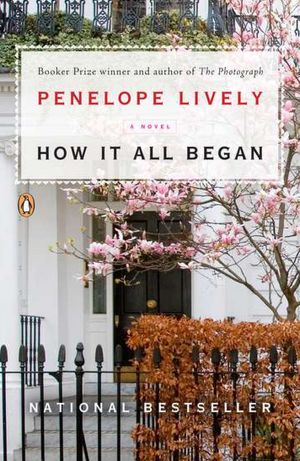
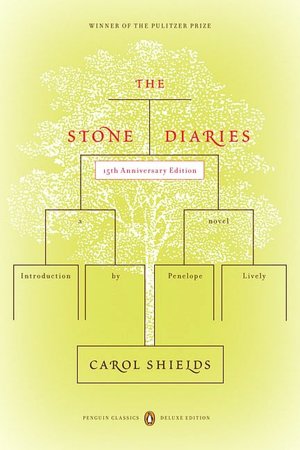
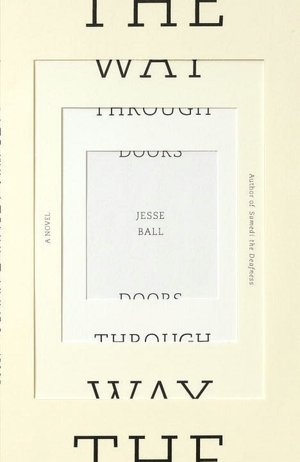









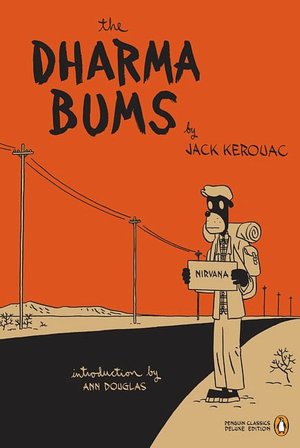



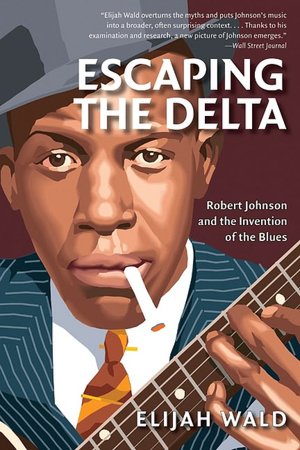 Escaping the Delta: Robert Johnson and the Invention of the Blues
by Elijah Wald
At the micro level, Wald writes of the personal exodus from the Mississippi Delta of bluesman Robert Johnson in the 1930s and his efforts to forge a career in the tough early years of the commercial recording industry. Wald simultaneously charts a broader unmapped path as he smashes his way through standard historical narratives. He takes issue with common notions in written blues history: that the genre represented a primal cry welling up from neo-African roots in the Mississippi Delta, isolated from contemporary pop music; that its early practitioners were unsophisticated musicians; that 1930s Black audiences heard the blues as a pure folk art rather than as commercialized pop music. Wald reminds readers that it is blues historians, not Johnson’s contemporaries, who elevated him to demigod status after his death. Using archival evidence for his assertions, Wald manages to scold blues revisionists and celebrate Johnson’s admirable output all at the same time. A new path indeed.
Escaping the Delta: Robert Johnson and the Invention of the Blues
by Elijah Wald
At the micro level, Wald writes of the personal exodus from the Mississippi Delta of bluesman Robert Johnson in the 1930s and his efforts to forge a career in the tough early years of the commercial recording industry. Wald simultaneously charts a broader unmapped path as he smashes his way through standard historical narratives. He takes issue with common notions in written blues history: that the genre represented a primal cry welling up from neo-African roots in the Mississippi Delta, isolated from contemporary pop music; that its early practitioners were unsophisticated musicians; that 1930s Black audiences heard the blues as a pure folk art rather than as commercialized pop music. Wald reminds readers that it is blues historians, not Johnson’s contemporaries, who elevated him to demigod status after his death. Using archival evidence for his assertions, Wald manages to scold blues revisionists and celebrate Johnson’s admirable output all at the same time. A new path indeed.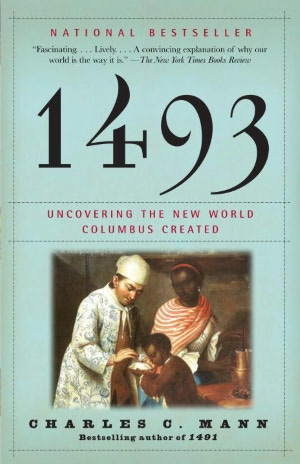 1493: Uncovering the New World Columbus Created
by Charles C. Mann
I learned of this book through an NPR interview with the author, immediately intrigued by his improbable ability to make agricultural history sound fascinating. The book does not disappoint in this regard, arguing that Columbus inaugurated the collision of previously-separate ecosystems and unwittingly launched globalization. Mann demonstrates this through quirky tales of staples such as the lowly potato, vastly entertaining as they meander clumsily through complex geopolitical contexts. Despite Mann’s fairly snappy and occasionally humorous prose, however, I often glazed over at the wealth of detail, guiltily skimming for the next cool anecdote. Additionally, Mann’s neutral stance on the ethics of globalization formed an interesting and uncomfortable undercurrent. I am more accustomed to hearing globalization roundly denounced, but appreciated the author’s encouragement to think about its positive aspects. If you’ve ever wondered how shiploads of bird guano helped reconfigure human civilization, this is the book for you.
1493: Uncovering the New World Columbus Created
by Charles C. Mann
I learned of this book through an NPR interview with the author, immediately intrigued by his improbable ability to make agricultural history sound fascinating. The book does not disappoint in this regard, arguing that Columbus inaugurated the collision of previously-separate ecosystems and unwittingly launched globalization. Mann demonstrates this through quirky tales of staples such as the lowly potato, vastly entertaining as they meander clumsily through complex geopolitical contexts. Despite Mann’s fairly snappy and occasionally humorous prose, however, I often glazed over at the wealth of detail, guiltily skimming for the next cool anecdote. Additionally, Mann’s neutral stance on the ethics of globalization formed an interesting and uncomfortable undercurrent. I am more accustomed to hearing globalization roundly denounced, but appreciated the author’s encouragement to think about its positive aspects. If you’ve ever wondered how shiploads of bird guano helped reconfigure human civilization, this is the book for you. The German Settlement of the Texas Hill Country
by Jefferson Morgenthaler
My point in mentioning this admittedly obscure book isn’t to imply that you should rush out and order it, but to make you wonder how your town or city or region Came To Be. My husband’s mother was born into one of the German communities that began forming in central Texas in the 1840s, and after a trip there we became curious about how and why these folks wound up on the other side of the world. Morgenthaler answered our questions many times over, relating how fallout from the French Revolution drove German nobles to finance the migration of underclass persons to, of all places, the republic of Texas. The book details the often-woeful and sometimes-humorous journeys of the Germans as they pushed forward in the Texas wilderness, surviving on bear meat and negotiating treaties with Comanches. Morgenthaler’s meticulously-researched book reminded me that the tale of new beginnings in unfamiliar places is the story of how all of us came to occupy our present plot of earth.
The German Settlement of the Texas Hill Country
by Jefferson Morgenthaler
My point in mentioning this admittedly obscure book isn’t to imply that you should rush out and order it, but to make you wonder how your town or city or region Came To Be. My husband’s mother was born into one of the German communities that began forming in central Texas in the 1840s, and after a trip there we became curious about how and why these folks wound up on the other side of the world. Morgenthaler answered our questions many times over, relating how fallout from the French Revolution drove German nobles to finance the migration of underclass persons to, of all places, the republic of Texas. The book details the often-woeful and sometimes-humorous journeys of the Germans as they pushed forward in the Texas wilderness, surviving on bear meat and negotiating treaties with Comanches. Morgenthaler’s meticulously-researched book reminded me that the tale of new beginnings in unfamiliar places is the story of how all of us came to occupy our present plot of earth.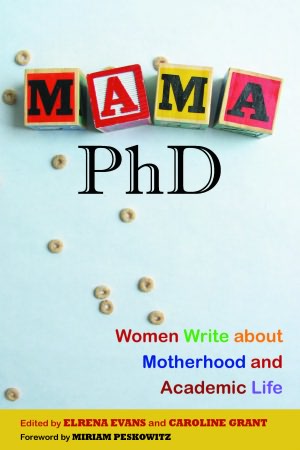 Mama Ph.D.: Women Write About Motherhood and Academic Life
by Elrena Evans and Caroline Grant, editors
Particularly germane to my own life circumstances recently was this collection of essays. By turns frustrating, funny, and affirming, it features the voices of female academics across a spectrum of disciplines, degree programs, and academic ranks. Some discuss remaining in the academy while raising children; others explore leaving to start a family. The book was sobering in its repeated structural critiques of academia’s inadequate maternity provisions. The writing of women who chose to leave university life upon having children deals honestly with the grief and deep embarrassment that often accompanied their decisions, but also points the way towards alternative career paths and new modes of satisfaction outside the academy for those with Ph.D.s. The book assured me I was not alone in my questions, struggles, and frustrations.
Mama Ph.D.: Women Write About Motherhood and Academic Life
by Elrena Evans and Caroline Grant, editors
Particularly germane to my own life circumstances recently was this collection of essays. By turns frustrating, funny, and affirming, it features the voices of female academics across a spectrum of disciplines, degree programs, and academic ranks. Some discuss remaining in the academy while raising children; others explore leaving to start a family. The book was sobering in its repeated structural critiques of academia’s inadequate maternity provisions. The writing of women who chose to leave university life upon having children deals honestly with the grief and deep embarrassment that often accompanied their decisions, but also points the way towards alternative career paths and new modes of satisfaction outside the academy for those with Ph.D.s. The book assured me I was not alone in my questions, struggles, and frustrations. Among the Mad (A Maisie Dobbs Novel)
by Jacqueline Winspear
I hope you have already met Maisie Dobbs, a relatively new yet already much-beloved female sleuth. In my mind her only peer among fictional detectives is Harriet Vane, created by the great writer Dorothy Sayers, for complexity of character and full-bodied realness. Like Sayers’ Vane, Dobbs works in the interwar period in England. The books, and Dobbs herself, are shot through with shadows and scars of the first World War, and a major thread in the series is how Dobbs’ own wartime pain slowly and haltingly gives way to new beginnings in her personal and professional life, though never in a pat or easy way. In this book, as with all books in the series, Dobbs works her way through a new mystery related to the war that gripped Europe fifteen years earlier (the book is set in 1931). She also forges new inroads into her personal relationships, an ongoing theme for Dobbs’ character after the life-altering tragedies she experienced as a nurse during the war.
Among the Mad (A Maisie Dobbs Novel)
by Jacqueline Winspear
I hope you have already met Maisie Dobbs, a relatively new yet already much-beloved female sleuth. In my mind her only peer among fictional detectives is Harriet Vane, created by the great writer Dorothy Sayers, for complexity of character and full-bodied realness. Like Sayers’ Vane, Dobbs works in the interwar period in England. The books, and Dobbs herself, are shot through with shadows and scars of the first World War, and a major thread in the series is how Dobbs’ own wartime pain slowly and haltingly gives way to new beginnings in her personal and professional life, though never in a pat or easy way. In this book, as with all books in the series, Dobbs works her way through a new mystery related to the war that gripped Europe fifteen years earlier (the book is set in 1931). She also forges new inroads into her personal relationships, an ongoing theme for Dobbs’ character after the life-altering tragedies she experienced as a nurse during the war.